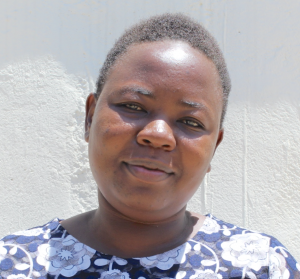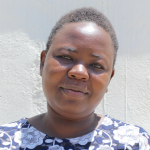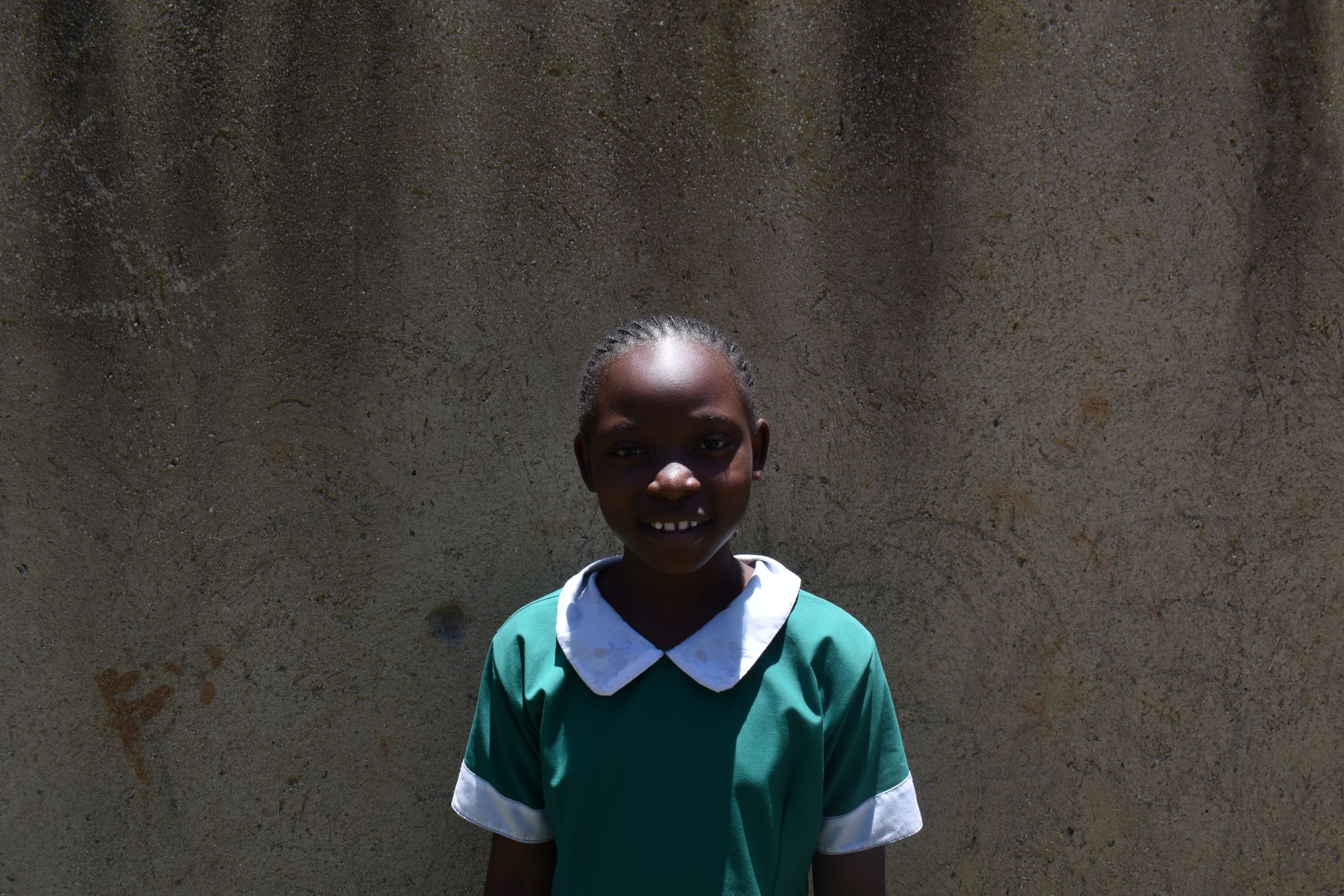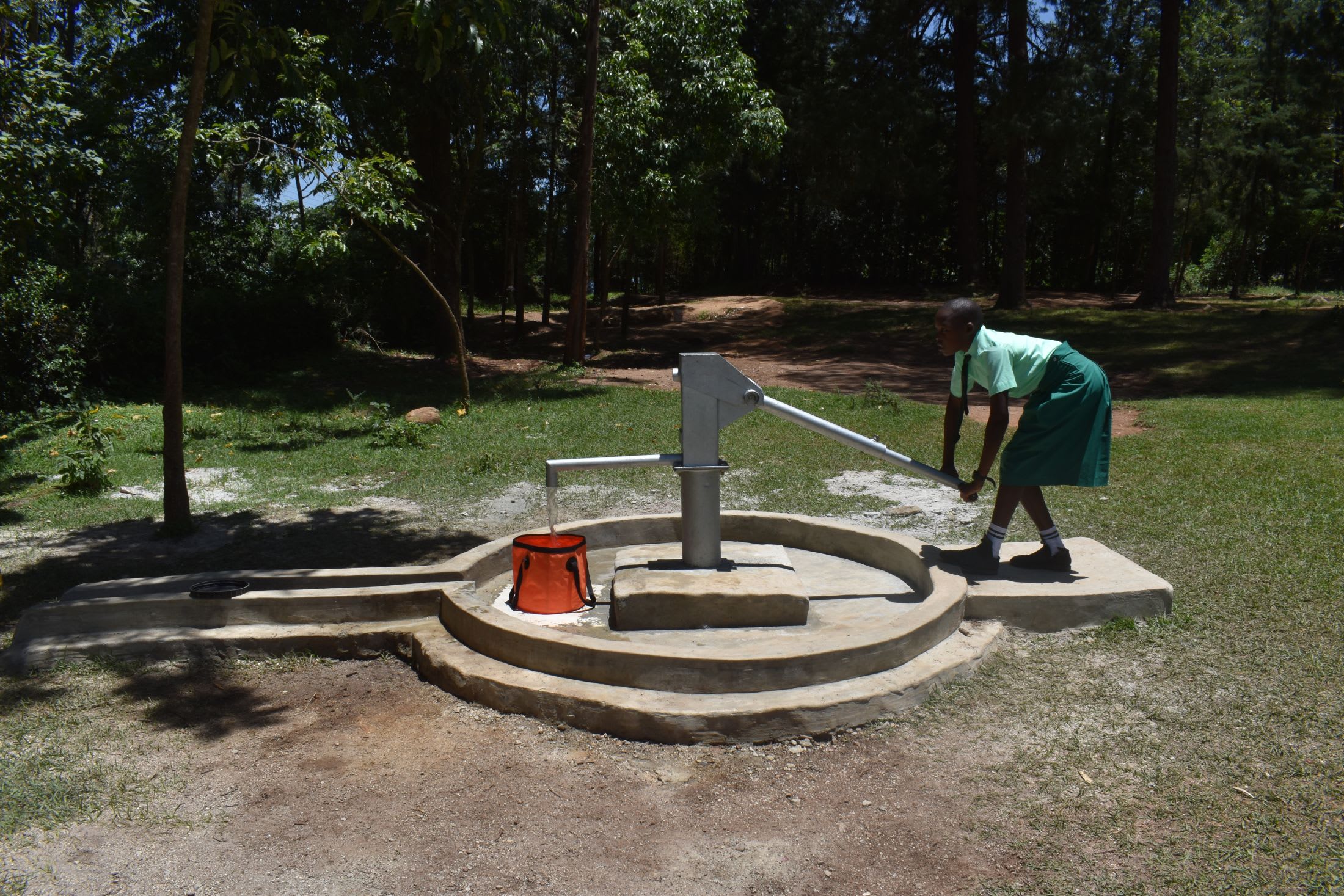The 619 students and staff of St. Jude Shikoti Girls Primary Boarding School struggle to access sufficient water. The two rain tanks on the school compound often run dry, forcing students to travel to a hand-dug well in the already over-crowded community, causing tensions between the school and the community at large.

Field Officer Betty Muhongo shared, "Going to the shared dug well has a few times raised trouble between the students and the community members who do not hold back and lash out at the students. The administration has had to intervene to keep the relationships between the school and the community well."
This boarding school exists because the community wanted to create better educational opportunities for the young girls of their community. Little did the community know that the school would struggle to meet its fundamental water needs, which would cause friction within the greater community.
Tensions between the community and school concerning their lack of water make life burdensome for students like Aisha.
"Having little water in school sometimes makes some of your plans interrupted, like washing clothes and taking baths. You can go to the taps to find them dry and have to wait for when you are allowed to go to the dug well," said 12-year-old Aisha, shown below.
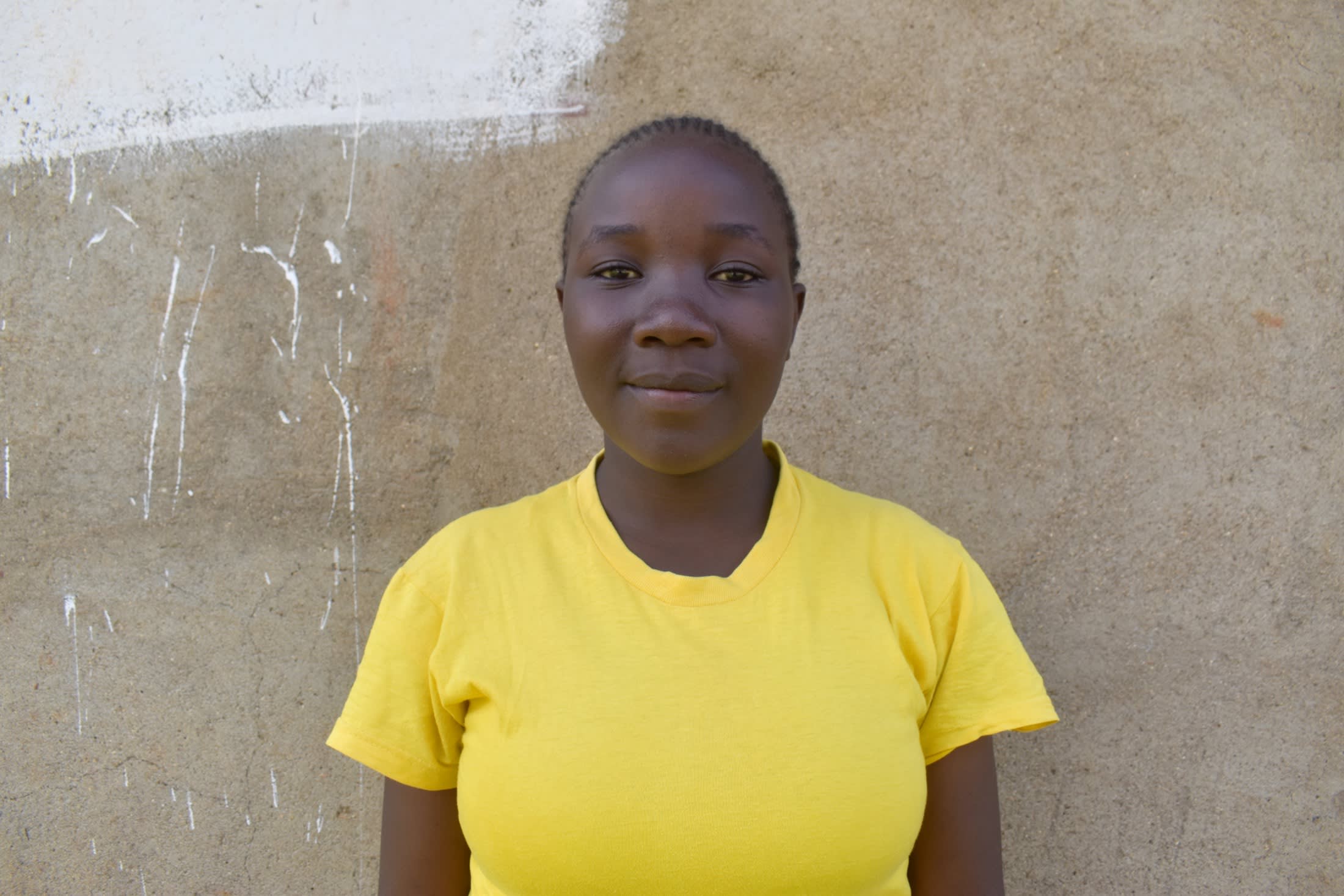
However, that isn't the only water-related problem at St. Jude Shikoti Girls Primary Boarding School.
"The two tanks at school are heavily dependent on the rain. Whenever there is a prolonged dry season, the tanks go dry. The protected dug well also gets a slower recharge speed during the dry seasons, creating a long queue for its dependents. Long queues translate to lost class time for the students and the teachers," Betty continued. Shown below is one of the rainwater tanks that often runs dry.

45-year-old Teacher Pamela Waweri, shown below teaching, shared, "We have recently had to go get water from the well more times than normal, and the trip to the well is usually dreadful to the teacher sent to watch over the students. They usually use this opportunity to misbehave, and some of the community members are difficult to deal with. At times the lines are too long, which ends up eating into your teaching time."

Without adequate class time, everyone suffers. Teachers don't get to complete their lessons, and students miss out on vital learning time that will ultimately affect their future endeavors.
Installing the well will enable students and teachers like Aisha to no longer worry about meeting their basic water needs. Improving personal hygiene in children will increase their self-esteem, which will greatly enhance their futures. Teachers like Pamela will be able to focus on utilizing all their classroom time to educate their students without the burden of searching for water.
Water at schools is unique, which is why we need unique solutions.
The Proposed Solution, Determined Together...
At The Water Project, everyone has a part in conversations and solutions. We operate in transparency, believing it benefits everyone. We expect reliability from one another as well as our water solutions. Everyone involved makes this possible through hard work and dedication.
In a joint discovery process, community members determine their most advantageous water solution alongside our technical experts. Read more specifics about this solution on the What We're Building tab of this project page. Then, community members lend their support by collecting needed construction materials (sometimes for months ahead of time!), providing labor alongside our artisans, sheltering and feeding the builders, and supplying additional resources.
Water Access for Everyone
This water project is one piece in a large puzzle. In Kenya, Sierra Leone, and Uganda, we're working toward complete coverage of reliable, maintained water sources that guarantee public access now and in the future within a 30-minute round trip for each community, household, school, and health center. One day, we hope to report that this has been achieved!
Training on Health, Hygiene & More
With the community's input, we've identified topics where training will increase positive health outcomes at personal, household, and community levels. We'll coordinate with them to find the best training date. Some examples of what we train communities on are:
- Improved hygiene, health, and sanitation habits
- Safe water handling, storage & treatment
- Disease prevention and proper handwashing
- Income-generation
- Community leadership, governance, & election of a water committee
- Operation and maintenance of the water point
Handwashing Stations
Alongside each water source, we also provide two new gravity-fed handwashing stations that will allow everyone at the school to wash their hands without running water. Handwashing is so important to help prevent future water-related illnesses in the school community.
The student health club will maintain the stations, fill them with water, and supply them with soap (which we will teach the school community how to make during the training!).
VIP Latrines
In addition, we will construct two triple-door Ventilated Improved Pit (VIP) latrine blocks designed to prevent fecal disease transmission. Each latrine will have a cement floor, which is easy to use and clean regularly. Three doors will serve the girls, and three doors will serve the boys.






 Borehole Well and Hand Pump
Borehole Well and Hand Pump
 Rehabilitation Project
Rehabilitation Project












